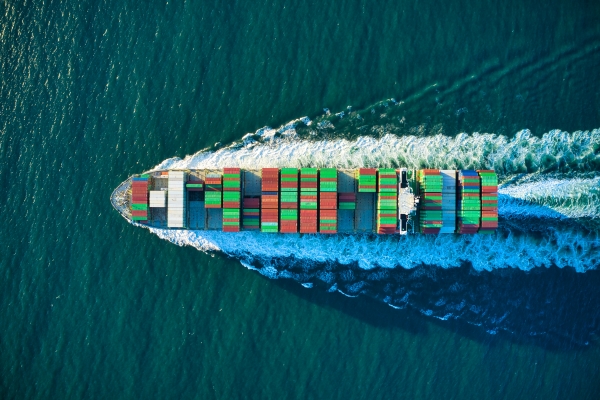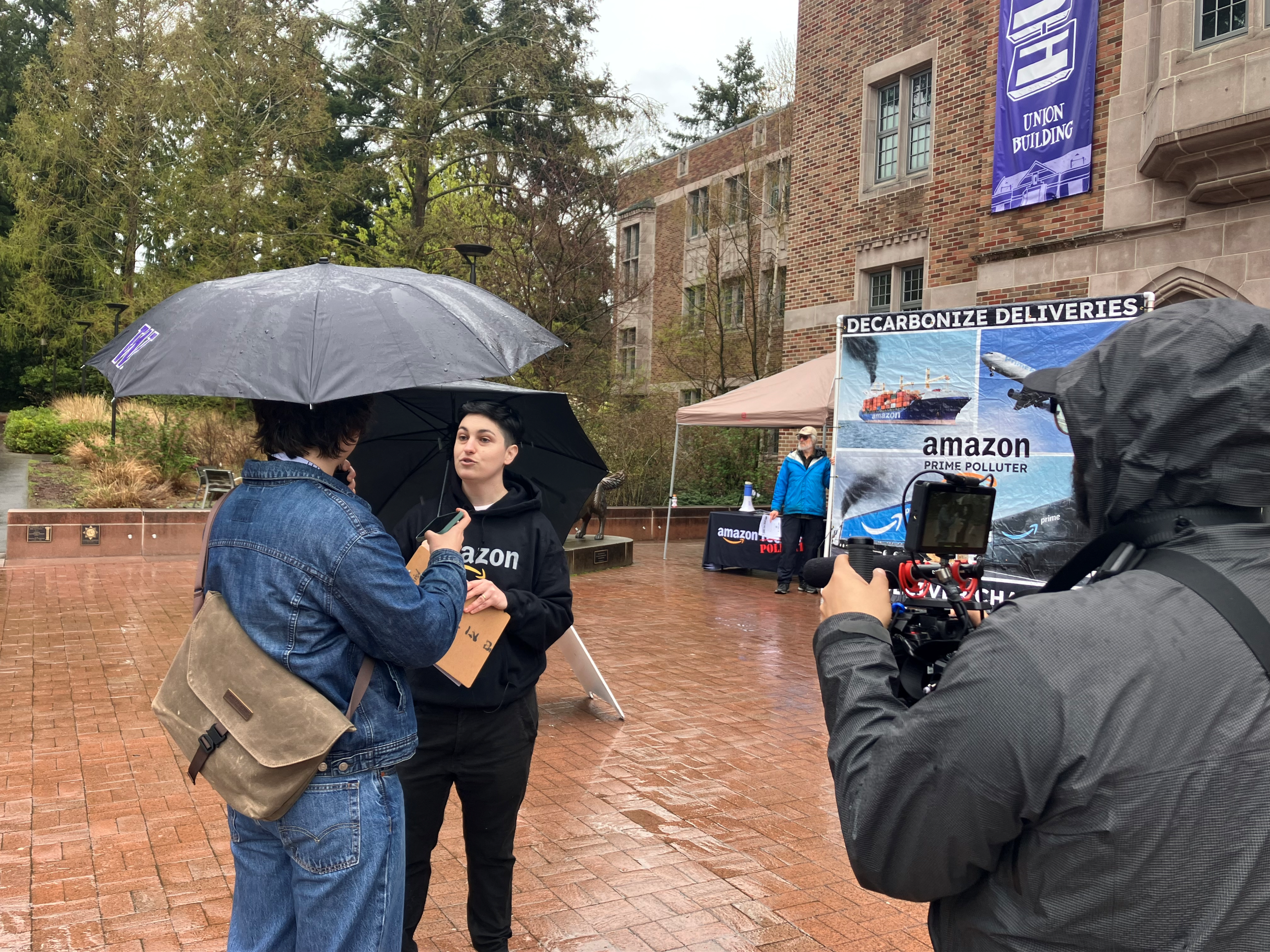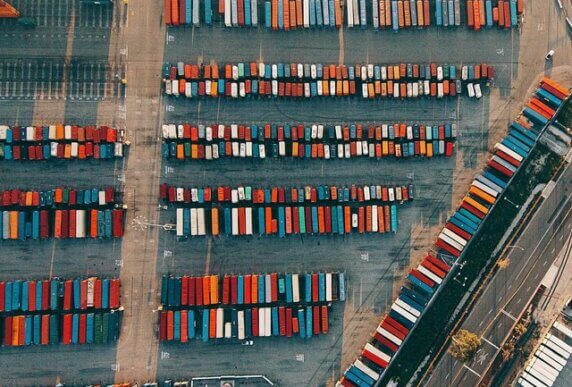


NEW YORK, NEW YORK (September 22, 2022) – Global retail giant Target joined other big retailers, including Amazon and IKEA, in a landmark commitment to move its products off of fossil-fueled ocean cargo ships by 2040 as part of the Aspen Institute’s Cargo Owners for Zero Emission Vessels initiative.
Environmental organizations with the Ship It Zero coalition say the commitment is “a good first step, but not strong enough to combat the worsening impacts of air pollution and the climate crisis in the present, 2022.”
The organizations applauded the actions by the Minneapolis, Long Beach, and Los Angeles City Councils as well as community groups in portside neighborhoods, for helping secure this win through dogged activism over the last year. Earlier this month, the Minneapolis City Council passed a Ship It Zero resolution calling on ocean import polluters, including Target Corporation, headquartered in Minneapolis, to commit to ship all imports to the U.S. on 100% zero-emission ships by 2030.
Minneapolis became the third city to pass a Ship It Zero resolution joining the zero-emission ocean shipping commitments of the cities of Los Angeles and Long Beach, California, home to the largest port complex in the Western Hemisphere and the top site for Target’s imports. Long Beach and Los Angeles community groups – including the Coastal San Pedro Neighborhood Council, East Yard Communities for Environmental Justice, First Congregational Church of Long Beach’s Board of Social Justice and Outreach, Coalition for Clean Air, and the Long Beach Green Schools Campaign – contributed to this victory through a persistent campaign focusing on ending Target’s ship pollution in Southern California, including an Earth Day 2022 Community March to and “Die-In” at Target in Long Beach, a webinar with medical experts on the harmful health impacts of Target’s fossil-fueled shipping, and a community letter to Target executives requesting a meeting to address ship pollution.
“With record-breaking heat waves this summer, the impacts of climate change are all around us and we must decisively act now. We thank Target for offering us a glimpse of hope by committing to abandon dirty ships, but 2040 – 18 years from now – is not a fast enough timeframe to address the significant impacts that fossil-fueled ocean shipping has on our environment, air quality, and portside neighbors in the present. Target’s fossil-fueled imports are currently choking portside communities like Los Angeles County’s West Long Beach, Wilmington, and San Pedro, where residents face up to 8 years
shorter life expectancy than the county average. We demand that Target be a good neighbor and move to 100% zero-emission shipping now, within our current decade; there is no time to waste.”
— Dawny’all Heydari, Climate Campaigner, Clean Ports Southern California at Pacific Environment.
“As the eighth largest retailer, Target has a responsibility to its consumers and portside neighbors to ship its goods on clean ships. We applaud Target for taking its first step toward addressing its ocean shipping pollution problem by joining CoZEV. We also call on Target to increase its level of ambition by committing to 100% zero-emissions ocean shipping by 2030. As a multibillion dollar company dedicated to sustainability, Target can afford to rapidly clean up its shipping act. While we celebrate this initial step, we urge Target to be the climate and public health leader that our communities, our oceans, and our future need.”
— Kendra Ulrich, Shipping Campaigns Director for Stand.earth.
“This win is thanks to the labor and advocacy of many Black and brown residents and leaders who paved the way to get industries like Target to clean up their act. Communities at the frontline of goods movement infrastructure will continue to push these massive industries to shift and invest into Zero Emissions technology as we continue the fight for clean air. Black and brown residents will continue to organize and mobilize to get all industries that contribute to contamination in our region to clean up their act, to divest from fossil fuels, and to prioritize the health of residents living adjacent to these sites of pollution. La lucha sigue! The fight continues.”
— Jan Victor Andasan, Community Organizer at East Yard Communities for Environmental Justice.
“Just as we are facing a global climate crisis, communities near goods movement hubs and corridors have long faced an air quality crisis. Neighborhoods near freeways have a higher incidence of asthma and other cardiopulmonary diseases, as well as have a higher risk for cancer. Just as we need government to act, we need businesses big and small to clean up their practices and reduce their impacts on communities. While we appreciate Target and other leading retailers taking a step in the right direction, we urge them to take even more bold, more immediate actions to reduce pollution.”
— Chris Chavez, Deputy Policy Director at Coalition for Clean Air.
Environmental groups Pacific Environment and Stand.earth, which lead the Ship It Zero campaign, are calling on major retail brands to become leaders in their sector by taking immediate action to reduce their climate and health-harming ocean pollution and switching entirely to zero-emissions ships by 2030— a decade earlier than Target’s commitment. This earlier goal will ensure the shipping industry does its fair share to keep global warming under 1.5 degrees Celsius, the target scientists say is needed to avoid the worst consequences of the climate crisis.
Approximately 90% of the world trade is transported by sea, and current business-as-usual scenarios project fossil fueled ship emissions will grow up to 50% over 2018 levels. On its current trajectory, ocean trade is projected to grow by as much as 130% by 2050 over today’s trade volume: if ships remain on fossil fuels, they will represent 17% of global carbon dioxide emissions by mid-century.
Every single merchant ship in operation right now runs on fossil fuels, but zero emissions vessels are expected to be on the water by 2024. Retailers can immediately reduce their climate and health-harming emissions from maritime shipping through reducing ship speeds (referred to as slow-steaming), shipping only on vessels that do not burn highly polluting heavy fuel oil and fossil gas (LNG), and prioritizing ports that offer onshore power to vessels to avoid idling ship engines while at berth.
Target and the international ocean cargo shipping industry currently rely on the dirtiest option in the market to fuel their ships: heavy fuel oil, a tar-like substance containing asthma and cancer-causing air pollutants including particulate matter. The fuel is so dirty that sometimes melted car tires and chemical waste that companies do not want to dispose of safely are added to shipping oil.
About Ship It Zero
Led by environmental advocacy groups Pacific Environment and Stand.earth, the Ship It Zero campaign is calling on some of the nation’s largest maritime importers — including Amazon, Target, IKEA, and Walmart — to transition to 100% zero-emissions cargo shipping vessels by 2030. This goal will ensure the shipping industry does its fair share in helping to keep global warming under 1.5 degrees Celsius, the target scientists say is needed to avoid the worst consequences of the climate crisis.

Recent Updates





